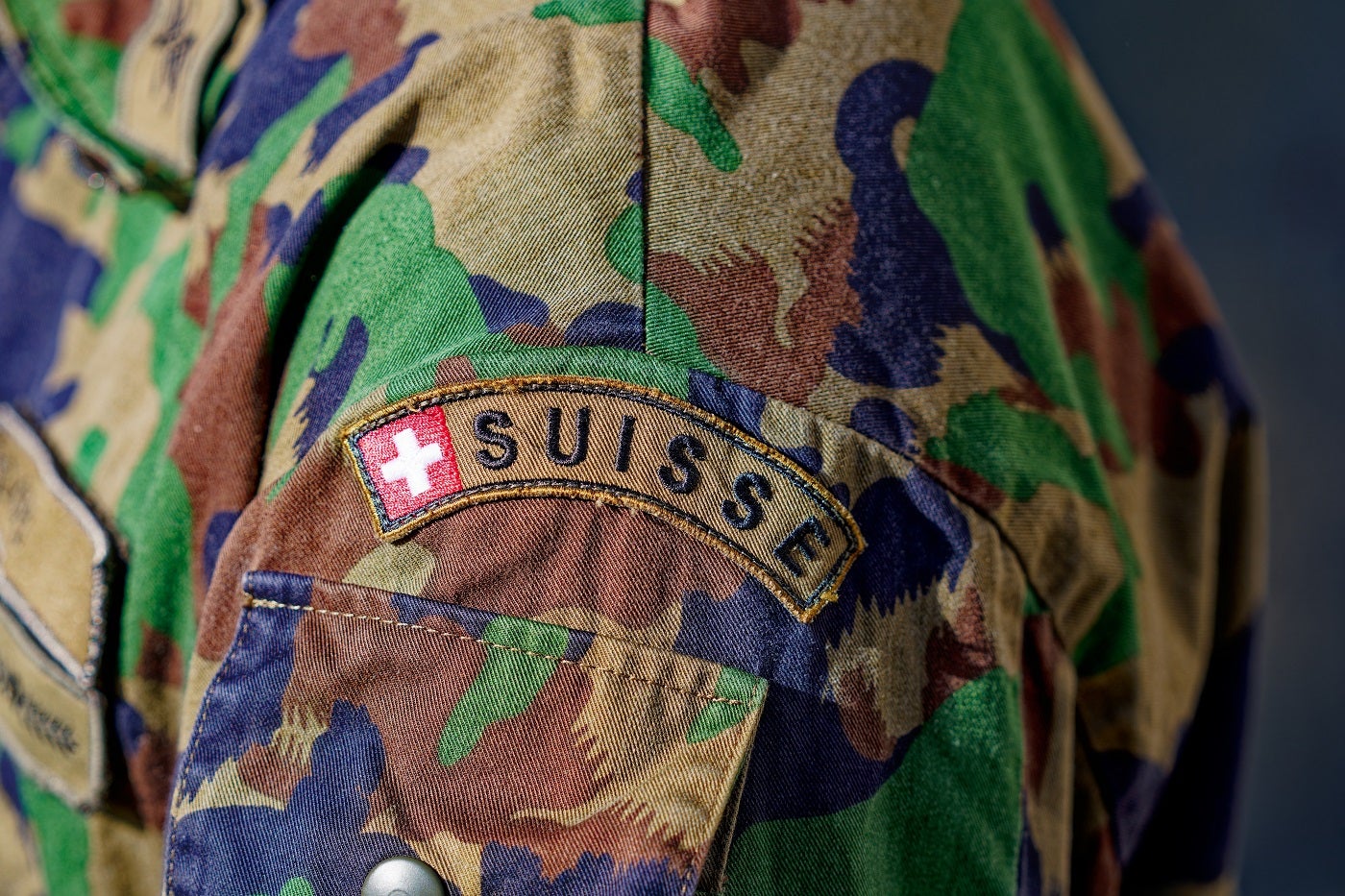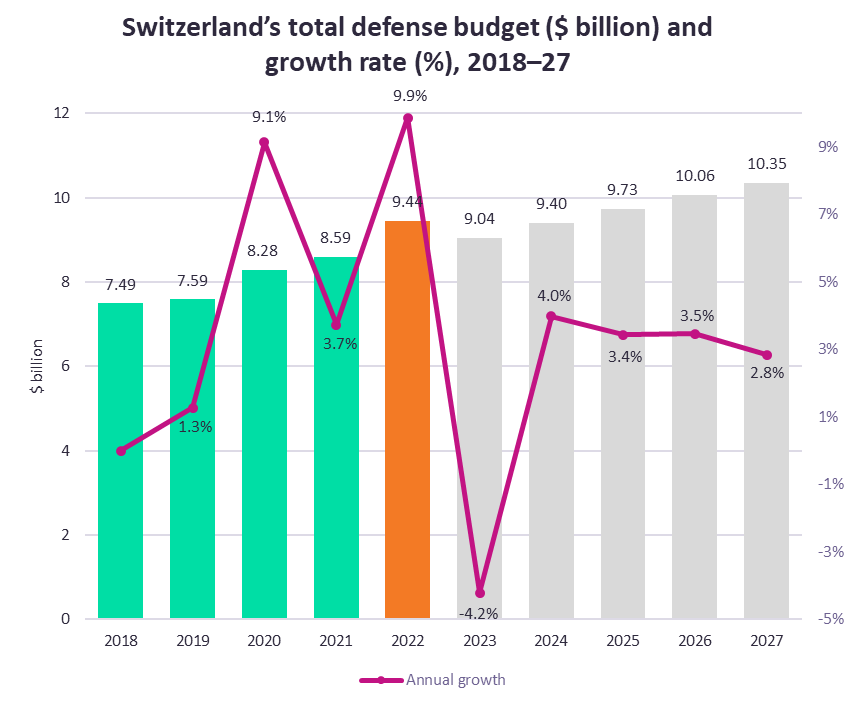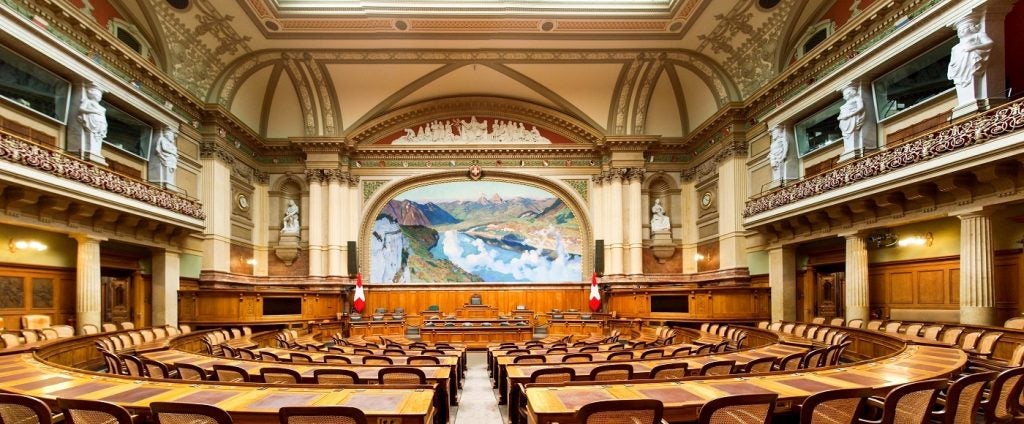
No alliances as neutrality blocks exports
Senior Swiss officials have indicated that they are reassessing the scope of Switzerland’s neutrality, considering growing pressure for Swiss arms to be legally allowed to be re-exported to conflict zones amid Russia’s ongoing war in Ukraine.
Switzerland upholds a position of armed neutrality, meaning it cannot form alliances with any country in the case of war. Thus, only the required capabilities for self-defence and internal protection are furnished.
Madeline Wild, associate defence analyst, commented: “Switzerland’s neutral position on the global stage means that the majority of equipment acquired by the armed forces is more aimed at self-defence rather than offensive capabilities.”
Switzerland’s European neighbours have attempted to transfer Swiss-made weaponry and military hardware to Kyiv, causing criticism towards Switzerland, which is under pressure for blocking requests for shipments of ammunition for anti-aircraft tanks or armoured vehicles to Ukraine.
To justify this decision, the Swiss Government argued that it could not export weapons to countries involved in international armed conflicts under national law. Fabian Maienfisch, deputy head of communications and media spokesperson at the State Secretariat for Economic Affairs, claimed: “Switzerland is firmly committed to peace and security and to supporting the people of Ukraine, but always in strict compliance with the law of neutrality, in keeping with its humanitarian tradition.”
Buyers of Swiss arms are legally prevented from re-exporting them, a restriction that some representing the country’s large weapons industry is now hurting trade. Many weaponry and military hardware manufacturing companies have seen profits rise from the exports of weapons to Ukraine from many western countries.
How well do you really know your competitors?
Access the most comprehensive Company Profiles on the market, powered by GlobalData. Save hours of research. Gain competitive edge.

Thank you!
Your download email will arrive shortly
Not ready to buy yet? Download a free sample
We are confident about the unique quality of our Company Profiles. However, we want you to make the most beneficial decision for your business, so we offer a free sample that you can download by submitting the below form
By GlobalDataJean-Marc Rickli, head of global and emerging risks at the Geneva Centre for Security Policy, told Army Technology when asked if the Alpine nation was just as much on the side of Russia as Ukraine by not providing military support, “Switzerland having decided to abide by economic sanctions against Russia, is bound by the law of neutrality not to discriminate belligerents and therefore has to reciprocate towards Ukraine, i.e. not providing war material to Ukraine.”
Talks are in motion
Thierry Burkart, leader of the centre-right Free Democratic Party, has submitted a motion to the Government to allow arms re-exports to countries with similar democratic values to Switzerland.
Jean-Marc Rickli continued: “The modification currently discussed in the Parliament would allow certain countries that share the same democratic values and human rights protection as Switzerland and who share a similar export control regime as Switzerland to lift the re-export ban after five years if they commit to not re-export to a country at war except if that country is using its right of self-defence as allowed by the UN Charter.”
Members of the Swiss Parliament have pushed for talks on the freeing up of weapon exports. Maienfisch stated that the legal situation regarding arms exports to Ukraine and Russia was clear. “Concerning the re-exports of war material of Swiss origin, the Swiss Parliament has taken up this issue and is currently discussing several proposals concerning the adaptation of the legal framework. The State Secretariat for Economic Affairs SECO cannot comment on these ongoing discussions.”
According to GlobalData’s “Switzerland Defense Market 2022-2027 report”, the Russian invasion of Ukraine and the subsequent deterioration of wider European security has driven Swiss military and Government officials to seek increased defence expenditure and military rapprochement with international allies, as the decision to impose economic sanctions on Russian assets has resulted in a heightened sense of unease throughout the country.

Ukrainian officials have also been urging the Swiss Government to review its position. “I ask Switzerland to supply defence weapons that protect people’s lives,” Kyiv Mayor Klitshcko said last month. “When it comes to human rights, to life and death, to war and peace, you cannot be neutral.”
European nations have requested to send Swiss-made military hardware to Ukraine. Germany wanted Switzerland to permit Germany to deliver tanks with Swiss components to Ukraine, Denmark to re-export Swiss-made armoured vehicles, and Spain to re-export Swiss-made anti-aircraft guns, all with no success.
Maienfisch claimed: “The Swiss Parliament is currently debating various parliamentary initiatives to make it easier for foreign countries to re-export war material produced in Switzerland. Whether this request will ultimately be successful and when a possible amendment to the law could come into force cannot yet be estimated.”
A potential referendum
Meanwhile, the right-wing Swiss People’s Party (SVP), the lower house’s largest party and traditionally staunch defenders of neutrality, now appear divided.
“The majority of the committee believes that Switzerland must make its contribution to European security, which means providing greater aid to Ukraine,” the majority of the committee members said in their statement.
Moreover, depending on the legislative form of the change of the rules, the move could even be subject to a referendum if enough signatures are found to oppose it.

Concluding, Rickli stated: “The Swiss direct democratic system allows the citizen to appeal to a decision of the Parliament through an optional referendum. The appeal needs at least 50,000 signatures from Swiss citizens in 100 days. In that case, the whole process of law adoption will take at least a year but can extend to a longer period.”
Meanwhile, Kyiv is preparing for a Russian offensive in spring. With centuries of Swiss tradition preventing the exportation of weapons and military hardware, it shows that changing neutrality laws will take much time. The time that Ukraine might not have.







